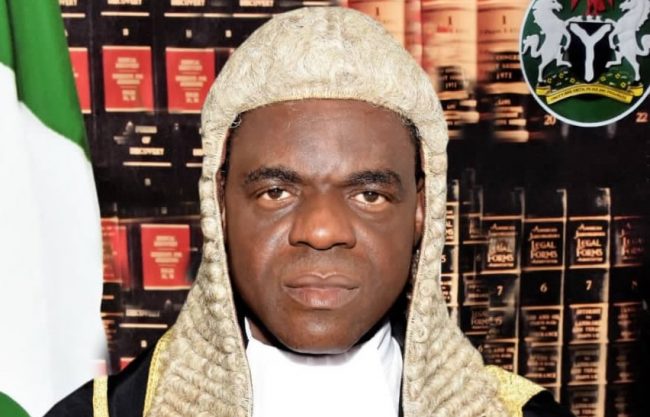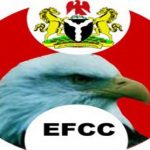

The Federal High Court of Nigeria has announced that it will no longer allow media coverage for cases bordering on terrorism.
This announcement is contained in a statement signed by the court’s Chief Information Officer, Dr. Catherine Christopher, on behalf of the Chief Judge of the court, Justices John Tsoho.
According to the statement, terrorism proceedings will be conducted secretly, except when the Chief Judge of the court grants permission for media coverage.
Read Also: Oil Theft: Court Jails Captain One Year, Forfeits Vessel To FG
One of the cases that will be affected by the directive is the ongoing terrorism prosecution of Nnamdi Kanu, leader of the proscribed Indigenous People of Biafra (BIAFRA).
The statement also says that terrorism proceedings will hold at any place to be designated by the Chief Judge and in the case of the Abuja judicial division, the venue, for the time being, will be the premises of the Code of Conduct Tribunal.
It states any person who contravenes an order or direction made under these practice directions shall be deemed to have committed an offence contrary to Section 34(5) of the Terrorism (Prevention) Act, 2011 (as amended).
The perimeters of the court sitting over a terrorism trial shall be secured for the period of the trial for safety of litigants and court officials.
Distance and size of perimeters to be secured for the trial shall be determined based on the recommendation of security agencies on a case-by-case basis.
It says No person shall be allowed within the secured perimeters save the approved court officials, parties and a number of pre-registered legal practitioners on either side, witnesses and any other person as may be directed by the judge or the most senior judge in the given circumstances.
It also provides that the names, addresses, telephone numbers and identities of the victims of such offences or witnesses in the proceedings “shall not be disclosed in any record or report of the proceedings and it shall be sufficient to designate the names of the victims or witnesses with a combination of alphabets”.
It empowers the trial court to: “Receive evidence by video link; Permit the witness to be screened or masked; Receive written depositions of expert witnesses; Direct that all or any part of the proceedings of the Court shall not be published in any manner”, among others.
According to the statement, the practice directions take immediate effect.






















